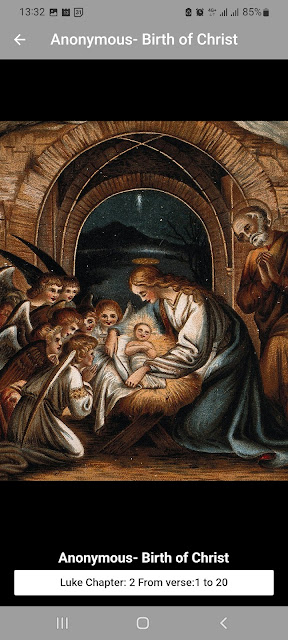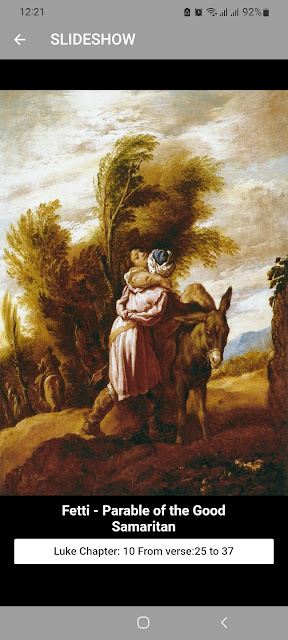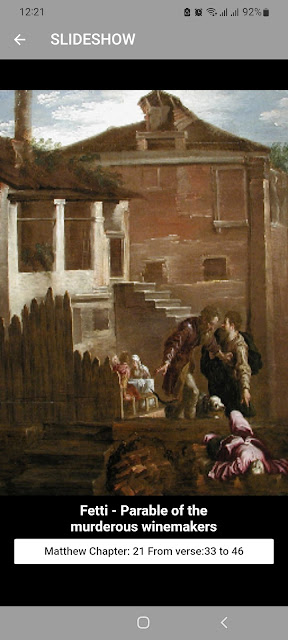a) Blessed are the poor in spirit for theirs is the Kingdom of God
To be poor in spirit relates to being reliant on God, rather than on self (poor in the spirit of self-reliance). This tends to be the case, especially among the poor, who simply do not have the earthly wherewithal to address the problems they face. They turn to God for everything. A rich man, on the other hand, may feel that he has the Earth in the palm of his hand, and there is nothing that is beyond his ability to resolve.
So how are we to approach this beatitude practically? As a rule of thumb, we should take everything to God in prayer, even if we think that it is something we can easily resolve.
Prayer does not necessarily mean going down on your knees. Prayer happens in the mind as your day progresses. An appeal to Him on all matters happens in the mind. This can only be the case if you recognize Him as the final authority on all matters. There is an Eastern Orthodox prayer that plays in my mind many times a day...it goes like this. "Jesus Christ, son of the living God have mercy on me a sinner" and thereafter ask for guidance.
Essentially forestall every decision with prayer. The more our worldview moves towards a Christian worldview, what may initially appear to be the obvious solution may turn out to be the very thing we want to avoid.
The more we rely on God and wait for his guidance the more we become better acquainted with the wider dimensions of the issue or problem being tackled. With practice, you learn to place God first, and slowly start to see as God sees.
Mironov- The young ruler, Mark 10:17-27
View more Images here


b) Blessed are they who mourn, for they shall be comforted
Mourning is in regard to reflecting on what is holy and thus right, compared to our present reality of injustice and sin.
If you have lamented at the state of the earth, one that lacks compassion is driven by greed, cares not for the poor and so on, then you have mourned. You have mourned at the depravity of your fellow man. You have mourned for your sins. You mourn at the sin that abounds in you, failing to be perfect as Christ desires for us.
We can't achieve perfection; our mortal nature means that we are always dogged by sin and worldliness, however, our perfection is attained in our continual struggle to live as Jesus taught. Keep at it. Our Lord will reward you for it.
As we mature in the Christian walk and our conscience is developed or formed along the lines of a Christian worldview, we may look on at the past in horror at the things we have done; we will also look in horror at the goings on around us; He promises us that we will be comforted.
c) Blessed are the meek, for they shall inherit the earth
First of all, let us define what it means to be meek. It’s to be quiet, gentle, and submissive. Other synonyms are patient, long-suffering, forbearing, resigned, and so on. The adjectives that define meekness, are about waiting on our maker and not exercising undue power over others. It does not mean that one is weak, but rather, even if we see, we choose to be gentle and wait upon the Lord for direction.
So if I can put it in my own words, to be meek is to be a “sucker” as far as the world is concerned. You can see through others, but you simply rely on justice from the Lord, while being gentle and long-suffering.
This is well connected to the beatitude of the poverty of spirit. Excess in life arises when all decorum, morals, scruples, and so on are thrown out of the window; only winning matters regardless of how it is done. Blatant or selfish ambition for example is considered good in today’s world and is the exact opposite of meekness. “I am up here and you are down there”, as a consequence I am better than you. This is the way of the world, and it is pure folly.
I have met many poor people, and I see great nobility in their midst. I have also met many rich people, and all I see are great fools with money. Our Lord sees the heart and not bank accounts. Meekness goes with humility. Humility is an attitude of mind that intentionally aims to lower our sense of self-importance.
So, how do we practically approach humility and meekness? I think it’s best to simply keep the thought in one’s mind constantly. Our Lord was meek, why not me? Our Lord was humble, why not me? Our Lord lived minimally, why not me? Our Lord disdained ambition in favour of servant leadership, so why not me?
For those endowed with plenty, the temptation to think themselves better than others always lingers. What we must never forget is that we all belong to the race of human beings, and we have all arrived similarly into the world and will leave similarly.
Between the advent of our lives and our eventual demise, is a concoction of fate that accounts for all our differences such as skin colour; language; economics; genetics; intelligence, and so on. It is only a fool who advances the notion that because I am cleverer than person X, I am therefore better.
The Sermon on the Mount suggests that we take on the responsibility of taking care of our neighbour because of the benefits we have been endowed with from on high, be it wealth, social advantages, genetic ones, and so on.
Let your strength be your meekness and not the advantage that sets you apart. It is said that to whom much has been given, much will be expected, but I also add, that to him to whom much has been given, much will be judged at the end of time.
The greatest men and women on earth (who follow these principles), while not necessarily Christians, have tended to adopt meekness as part of their characters. By simply placing themselves beneath everyone else, they would naturally have everyone’s ear. Examples include Mahatma Gandhi, Nelson Mandela, and Mother Teresa. Not only were they great, but also exceptionally intelligent and saw the need to use their gifts for noble human-wide aims in line with the teachings of Jesus.
We continue in the next post
Enjoy












.jpg)



